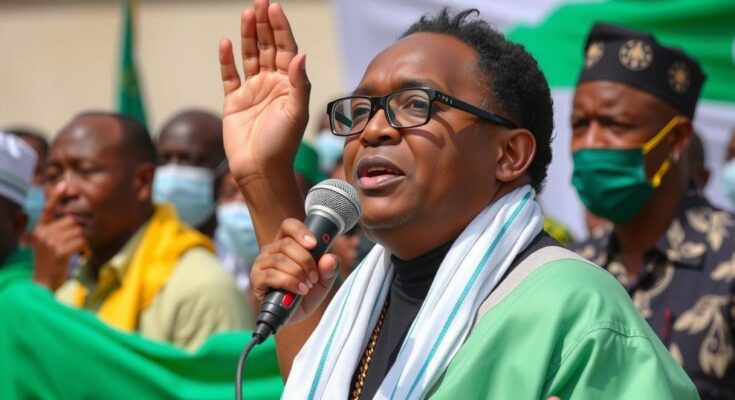Chadian opposition leaders are calling for the cancellation of the December 29 elections, citing low voter turnout and allegations of electoral manipulation. In contrast, the National Agency for the Management of Elections insists on the legitimacy of the process. Public discontent grows over the transitional government as opposition groups advocate for a new era of dialogue and stability.
An uneasy calm pervades Chad as opposition factions advocate for the cancellation of the upcoming general elections slated for December 29, arguing that the electoral process has been severely boycotted. Despite this, Chad’s National Agency for the Management of Elections (ANGE) remains committed to counting the votes and announcing the results, asserting that highlighted irregularities will not impact the election outcome. Provisional results are expected by January 15, with the elections intended to conclude a three-year transitional period established after the passing of former President Idriss Deby in April 2021.
Assane Bairra, vice president of ANGE, has reported that approximately 36% of the 8.3 million registered voters participated in the recent elections, which included local, provincial, and parliamentary placements. However, opposition representatives claim this turnout figure is grossly inflated. Avocksouma Djona, the spokesperson for the Political Actors Consultation Group (GCAP), stated that over 90% of registered voters adhered to their calls for a boycott, believing that the current administration seeks to perpetuate the long-standing rule of the Deby dynasty.
In a press conference, Succes Masra, president of The Transformers—one of the main opposition parties—advocated for a renewed transition period rooted in truth, dialogue, and reconciliation as a foundation for a stable political climate. Masra further articulated concerns regarding the potential for escalating tensions to propel Chad toward violence and unrest. Djona emphasized that despite the asserted widespread boycott, an announcement proclaiming the ruling Patriotic Salvation Movement as victors by ANGE remains plausible.
Political analyst Yamingue Betinbaye from the University of N’djamena highlighted that while the opposition presents valid claims regarding electoral misconduct, the likelihood of annulment of the elections is slim. The Chadian government has countered calls for cancellation as attempts to incite chaos and violence, urging citizens to refrain from street protests and maintain national stability.
The situation in Chad has become increasingly volatile as opposition parties push for the cancellation of upcoming elections, citing significant public disapproval and allegations of manipulation. The backdrop of the current political crisis stems from the transition initiated after the death of Idriss Deby, whose son now leads the transitional government. The December elections were intended to signal an end to this provisional governance; however, widespread protests and calls for boycotts reflect deep public dissatisfaction with the ruling regime, which many perceive as a continuation of a dictatorial legacy.
In summary, the political landscape in Chad is fraught with tension as opposition calls for electoral disruption collide with government assurances of electoral integrity. The approaching December elections, deemed crucial for the country’s transition, have become a point of contention, characterized by significant public boycott and claims of electoral improprieties. The potential for increased unrest looms unless constructive dialogue and reconciliation efforts can pave the way for a more inclusive political process.
Original Source: www.voanews.com




